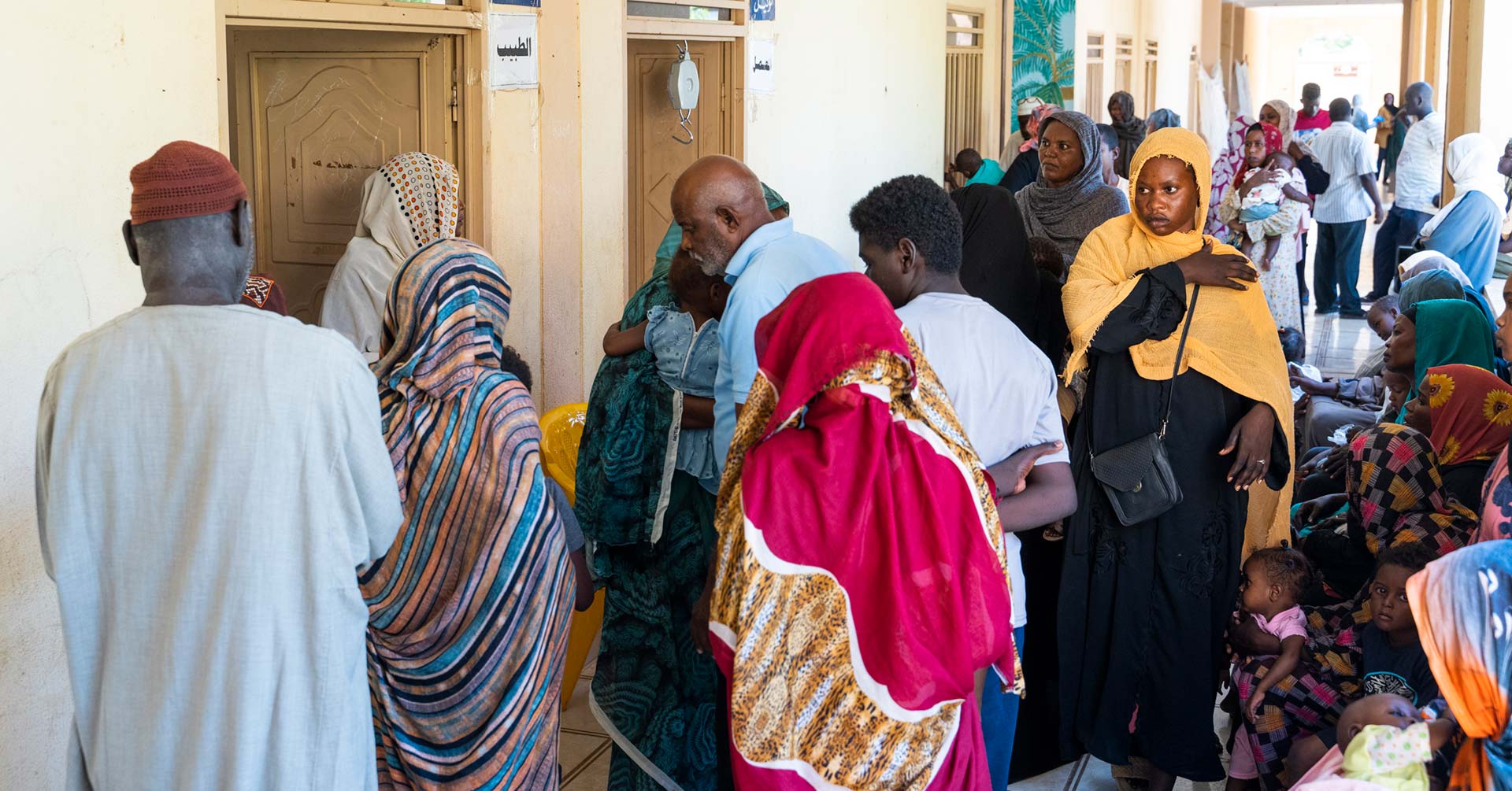
13 October 2025 – Health systems across the WHO Eastern Mediterranean Region are under immense strain. As of April 2025, 16 graded emergencies were affecting millions of people in the region, around 115 million people of whom are in urgent need of health services and humanitarian support. From armed conflicts and natural disasters to disease outbreaks, climate change and economic collapse, these overlapping crises are pushing health institutions to their limits and leaving communities vulnerable.
Hard-won progress towards key health goals, especially universal health coverage (UHC) and health security, are being reversed. Damaged infrastructure, displaced health workers and disrupted supply chains are making it harder for people to access even the most basic care.
Health systems recovery is about more than rebuilding health facilities. It is is not something that happens after a crisis. It must begin during the crisis. It involves restoring essential services, rebuilding trust and creating more resilient systems that can withstand future shocks. In fragile and conflict-affected situations, accelerating recovery is essential for stability and peace and to achieve development goals and protect lives.
We have an opportunity to build back better, address long-standing weaknesses, promote equity and reduce future risks. Recovery must be people-centered, inclusive and rooted in local realities.
Promoting effective recovery
WHO is advocating for following key principles to guide health systems recovery in the Region.
Early intervention: Recovery should start early, often alongside the humanitarian response, and be tailored to the needs of each community.
Flexibility and conflict sensitivity: Strategies must adapt to changing conditions and be sensitive to the dynamics of fragile settings.
National and local leadership: Recovery efforts should be led by national and local actors, using a humanitarian-development-peace nexus approach to manage risks comprehensively.
To support countries, WHO has developed an adaptable operational framework for health systems recovery that can be embedded in national strategies and used in multisectoral recovery processes. The health system recovery framework draws on regional experiences and aligns with WHO’s Fourteenth General Programme of Work (GPW14) and the Strategic Operational Plan for the Eastern Mediterranean Region 2025–2028. It also supports the resilience-building agenda outlined in the Regional Committee’s technical paper, which focuses on advancing UHC and strengthening health security.
WHO has drafted a resolution calling for sustained commitment to recovery as a foundation for resilient health systems. Practical guidance has been developed to help Member States, WHO and partners implement recovery strategies effectively.
The Seventy-second session of the WHO Regional Committee (RC72) will review a technical paper on health systems recovery and is expected to make a decision on the proposed resolution.








